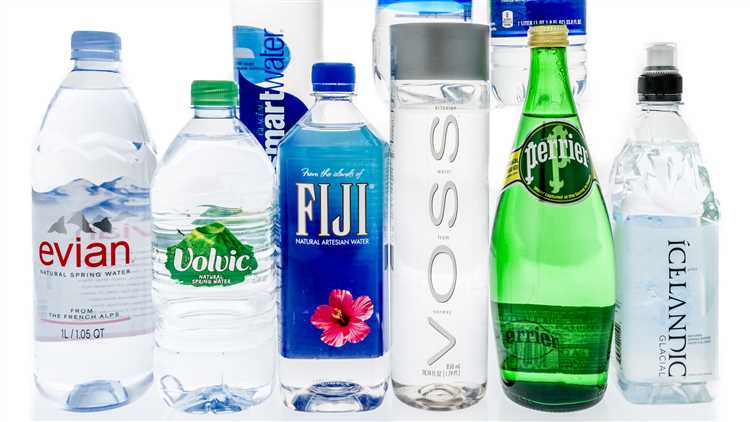
Many people rely on bottled water as a convenient and portable source of hydration. Whether you are at the gym, on a hike, or simply on-the-go, having a bottle of water readily available can be a lifesaver. But have you ever wondered if bottled water expires? Is there a shelf life for this essential resource?
The short answer is yes, bottled water does have an expiration date. While water itself cannot spoil or go bad, the plastic bottles in which it is stored can leach chemicals over time. This is particularly true if the bottles are exposed to heat or sunlight, which can accelerate the deterioration process. As a result, the taste and quality of the water may be affected after a certain period.
But how long can you safely consume bottled water? The answer usually depends on the type of water and its packaging. Most manufacturers recommend consuming bottled water within two years of the production date. This timeframe provides a buffer to ensure that the water remains safe and retains its freshness. However, it’s important to note that the expiration date is not necessarily an exact science.
It’s worth mentioning that in emergency situations, such as natural disasters or other unforeseen events, the expiration date becomes less relevant. In these circumstances, it’s crucial to prioritize hydration and opt for any available source of water, including bottled water with expired dates. While it might not taste as fresh, it can still provide the hydration needed to sustain life.
- Understanding the Shelf Life of Bottled Water
- What is the Shelf Life of Bottled Water?
- Factors Affecting the Shelf Life
- How to Store Bottled Water for Maximum Shelf Life?
- Signs of Expired Bottled Water
- Is it Safe to Drink Expired Bottled Water?
- Factors to Consider when Drinking Expired Bottled Water
- Table: Recommended Shelf Life of Bottled Water
- Tips for Ensuring the Quality and Safety of Bottled Water
- 1. Check the expiry date
- 2. Store in a cool, dry place
- 3. Avoid freezing
- 4. Use within a reasonable time frame
- 5. Avoid reusing bottles
- 6. Inspect for any signs of damage or tampering
- Q&A:
- Does bottled water expire?
- How long does bottled water last before it expires?
- What happens to bottled water when it expires?
- Is it safe to drink expired bottled water?
- Can I still use expired bottled water for cooking or other purposes?
- Does bottled water have an expiration date?
- How long can you store bottled water?
Understanding the Shelf Life of Bottled Water
Bottled water is a common commodity that many people rely on for their hydration needs. However, it’s important to understand that even though water is a basic necessity, it does have a limited shelf life.
The shelf life of bottled water can vary depending on various factors such as the type of bottle it is stored in and how it is stored. Generally, commercially produced bottled water has a printed expiration date on the label, indicating the recommended period in which it is best to consume the water.
The expiration date is not a safety concern but rather a quality issue. Over time, the water can start to taste flat or develop an unpleasant odor. This is due to the absorption of carbon dioxide from the air, which can alter the taste and smell of the water.
If stored properly in a cool, dry place away from direct sunlight, bottled water can typically retain its quality for about 1-2 years. It’s important to note that this timeframe applies to unopened bottles. Once a bottle is opened, it should be consumed within a few days to ensure freshness.
When it comes to storing bottled water, it’s recommended to keep it away from chemicals, cleaning supplies, or anything with a strong odor as these substances can affect the taste of the water. It’s also important not to re-use plastic bottles, as they may degrade or leach chemicals into the water over time.
To ensure the best quality and taste, it’s advisable to check the expiration date on the bottle and consume the water before that date. If there is no expiration date, a general rule of thumb is to consume the water within 1-2 years of purchase.
In conclusion, while bottled water does have a shelf life, it is generally safe to consume even after the expiration date. However, for the best taste and quality, it’s recommended to consume the water before the expiration date or within 1-2 years of purchase.
What is the Shelf Life of Bottled Water?
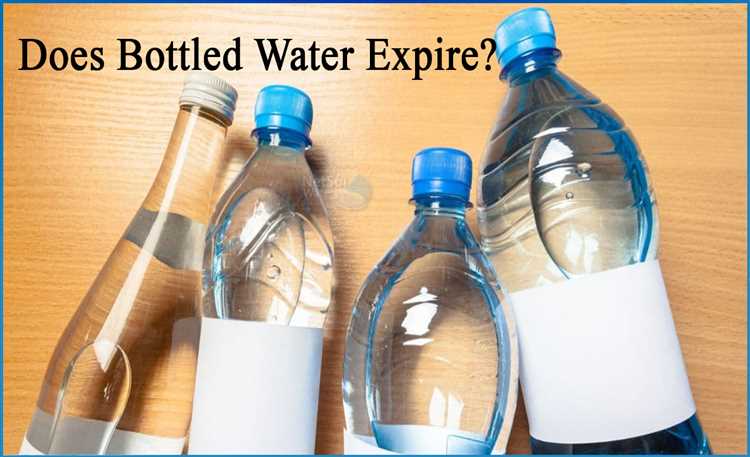
Bottled water typically has a long shelf life, but it is not indefinite. The shelf life of bottled water can depend on various factors, such as the type of bottle, storage conditions, and the presence of any additives.
In general, most commercially packaged bottled water will have a labeled expiration date. This expiration date is determined based on the recommendations of the manufacturer. However, it’s important to note that the expiration date is not always a strict cutoff for when the water becomes unsafe to drink.
The Food and Drug Administration (FDA) does not require an expiration date for bottled water, as it is considered to have an indefinite shelf life if stored properly. However, bottlers may voluntarily include an expiration date for quality control purposes.
The type of bottle used can also affect the shelf life of water. Most plastic water bottles are made from polyethylene terephthalate (PET) and are designed to be durable and resistant to degradation. However, over time, the plastic can release chemicals into the water, potentially affecting its taste and odor.
Storage conditions, such as exposure to heat and sunlight, can also impact the shelf life of bottled water. Storing water in a cool, dry place away from direct sunlight can help maintain its quality for a longer period of time.
If there are any additives, such as electrolytes or flavorings, in the bottled water, they may have their own expiration dates that should be followed for optimal quality.
| Factors | Impact on Shelf Life |
|---|---|
| Type of bottle | Can release chemicals over time |
| Storage conditions | Exposure to heat and sunlight can degrade quality |
| Additives | May have their own expiration dates |
In conclusion, while bottled water typically has a long shelf life, it is still important to check for any expiration dates provided by the manufacturer. Additionally, proper storage conditions can help maintain the quality of the water for an extended period of time.
Factors Affecting the Shelf Life
Several factors can affect the shelf life of bottled water:
- Exposure to sunlight: Ultraviolet (UV) rays from the sun can degrade the quality of the plastic bottle and cause the water to have an off taste. It is best to store bottled water in a cool, dark place to minimize exposure to sunlight.
- Temperature: High temperatures can accelerate the breakdown of the plastic bottle, potentially leaching chemicals into the water. Therefore, it is advisable to store bottled water in a cool environment, away from extreme heat or cold.
- Seal integrity: The shelf life of bottled water can also be affected by the quality of the seal. If the seal is compromised, it can allow contaminants to enter the bottle, reducing the water’s shelf life.
- Chemical leaching: Over time, chemicals from the plastic bottle can leach into the water, especially if stored for an extended period or exposed to high temperatures. While plastic bottles are generally safe for single use, it is recommended to avoid reusing them to minimize the risk of chemical leaching.
- Microbial growth: If the bottle becomes contaminated with bacteria or other microorganisms, it can affect the quality and safety of the water. It is essential to keep the bottle cap tightly closed and avoid touching the inside of the cap or spout to minimize the risk of microbial growth.
By considering these factors, you can help prolong the shelf life of your bottled water and ensure its quality and safety when consumed. It is always a good idea to check the expiration date on the bottle and follow the manufacturer’s recommendations for storage and consumption.
How to Store Bottled Water for Maximum Shelf Life?
Proper storage is essential for maintaining the maximum shelf life of bottled water. Follow these tips to ensure that your water stays fresh and safe to drink for as long as possible:
- Store in a cool, dark place: Exposure to heat and sunlight can degrade the quality of bottled water and reduce its shelf life. Keep your water bottles away from direct sunlight and high temperatures to prevent the plastic from breaking down and the water from becoming contaminated.
- Avoid extreme temperatures: Fluctuations in temperature can cause the expansion and contraction of the plastic bottles, leading to potential leaks and contamination. Avoid storing your water bottles in areas prone to extreme temperature changes, such as garages or attics.
- Keep away from chemicals: Store your bottled water away from any household cleaning products or chemicals that could potentially contaminate the water. Chemicals can leach into the plastic bottles and compromise the quality and safety of the water.
- Check for leaks and damage: Inspect the bottles regularly for any signs of damage, such as cracks or leaks. If you notice any issues, it’s best to discard the bottle and replace it to ensure the safety and freshness of the water.
- Rotate stock: If you’re storing a large supply of bottled water, make sure to rotate the stock regularly. Use older bottles first and replace them with newer ones to ensure that you’re always consuming the freshest water possible.
- Label and date: To keep track of the freshness of your water supply, consider labeling and dating each bottle. This will help you easily identify the oldest bottles and consume them first.
By following these storage guidelines, you can extend the shelf life of your bottled water and ensure that it remains safe and refreshing to drink when you need it most.
Signs of Expired Bottled Water
While bottled water does not have an official expiration date, there are some signs that can indicate it is no longer safe to consume.
1. Foul odor: If your bottled water has a strange or unpleasant smell, it could be a sign that it has gone bad. Fresh water should not have any noticeable odor.
2. Change in taste: If the taste of your bottled water becomes different or off, it is a clue that the quality of the water has deteriorated. Fresh water should have a clean and neutral taste.
3. Cloudiness or floating particles: If you notice cloudiness or floating particles in your bottled water, it may indicate that bacteria or other contaminants have entered the bottle.
4. Damaged or bulging bottle: Bottled water should always be stored in a cool and dry place. If the bottle shows signs of damage or is bulging, it may have been exposed to extreme temperatures or pressure, which can compromise its safety.
5. Excessive bottle wear: If the bottle appears worn or damaged, it could indicate that it has been stored for too long or exposed to harsh conditions. Over time, the plastic may degrade, leaching harmful chemicals into the water.
If you notice any of these signs, it is best to err on the side of caution and discard the expired bottled water. It is always recommended to consume fresh and properly stored bottled water for optimal safety and taste.
Is it Safe to Drink Expired Bottled Water?
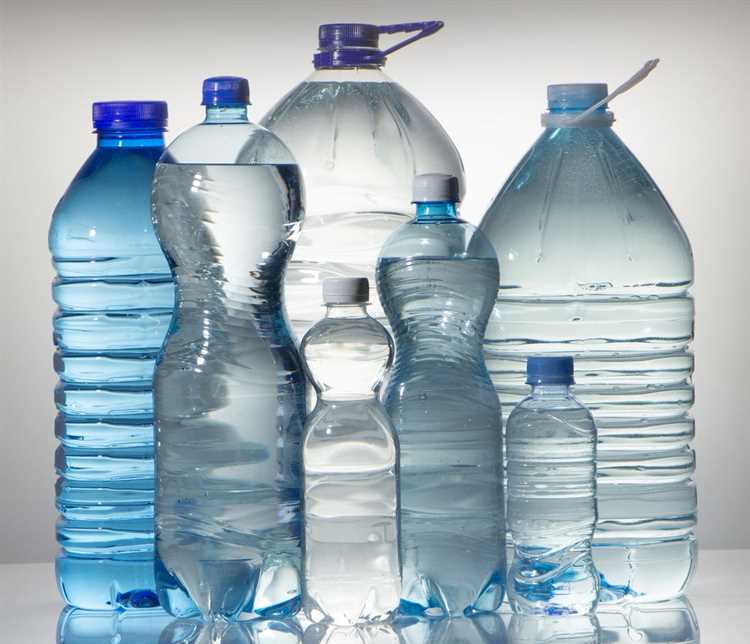
Many people wonder if it is safe to drink expired bottled water. The answer to this question depends on a few factors. Bottled water typically has a “best by” or “use by” date printed on the label, which indicates the recommended shelf life of the water. However, this date is not a strict expiration date, but rather a suggestion for when the water will taste its best.
In most cases, it is safe to consume expired bottled water, as long as it has been stored properly and there are no signs of contamination, such as a strange odor or discoloration. However, it is important to note that the taste and quality of the water may deteriorate over time.
Factors to Consider when Drinking Expired Bottled Water
1. Storage conditions: If the bottled water has been stored in a cool, dry place away from direct sunlight and contaminants, it is more likely to remain safe to drink even after the expiration date.
2. Packaging: The type of packaging used for the bottled water can also affect its shelf life. Plastic bottles, for example, can leach chemicals into the water over time, especially if they have been exposed to high temperatures.
3. Contamination: If there are any signs of contamination, such as a strange odor or discoloration, it is best to discard the expired bottled water to avoid any potential health risks.
Table: Recommended Shelf Life of Bottled Water
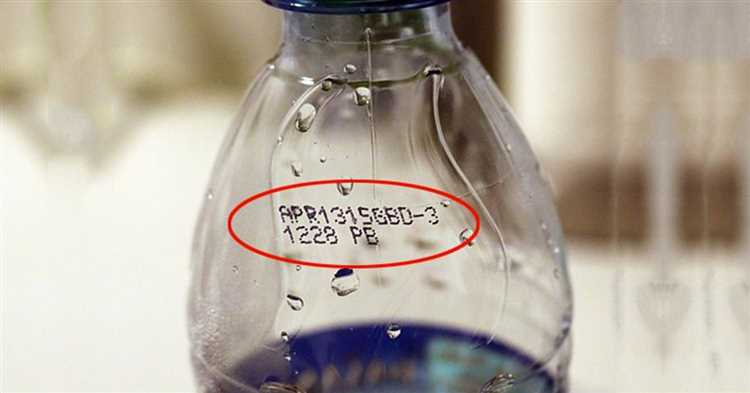
| Storage Container | Shelf Life |
|---|---|
| Plastic bottle | 1-2 years |
| Glass bottle | 2-3 years |
| PET bottle | 1-2 years |
It is always a good idea to check the expiration date before consuming bottled water, but if the water appears and smells normal, it is generally safe to drink, even if it has expired. However, for optimal taste and quality, it is recommended to consume bottled water within its recommended shelf life.
Tips for Ensuring the Quality and Safety of Bottled Water
While bottled water typically has a long shelf life, it is important to ensure that it remains safe to drink. Here are some tips to help you maintain the quality and safety of your bottled water:
1. Check the expiry date
Before purchasing or consuming bottled water, always check the expiry date. Bottled water does not necessarily go bad, but it is best to consume it before the expiration date for optimal taste and quality.
2. Store in a cool, dry place
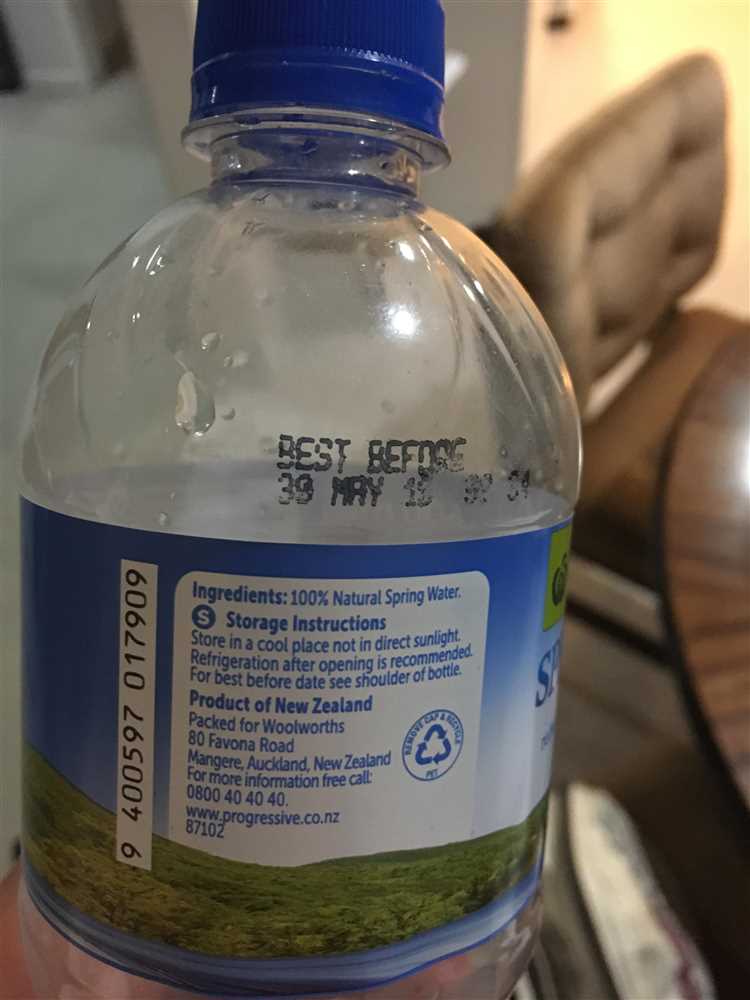
To maintain the freshness of bottled water, store it in a cool, dry place away from direct sunlight and strong odors. Exposure to heat and sunlight can degrade the quality of the water over time.
3. Avoid freezing
While freezing won’t necessarily spoil bottled water, it can cause the plastic bottle to expand and potentially leak. Moreover, freezing can affect the taste and texture of the water. It is best to keep your bottled water at room temperature.
4. Use within a reasonable time frame
If you open a bottle of water, it is best to consume it within a reasonable time frame, typically within a few days. This will help prevent any potential contamination and maintain the freshness of the water.
5. Avoid reusing bottles
While some plastic bottles are labeled as reusable, it is generally recommended to avoid reusing plastic bottles for drinking water. Over time, bacteria can build up in the bottle, which can contaminate the water and pose a health risk.
6. Inspect for any signs of damage or tampering
Before consuming bottled water, make sure to inspect the bottle for any signs of damage or tampering. If the seal is broken or the bottle appears damaged, it is best to discard it to ensure your safety.
By following these simple tips, you can ensure the quality and safety of your bottled water and enjoy it at its best.
Q&A:
Does bottled water expire?
Yes, bottled water can expire, but it usually has a very long shelf life.
How long does bottled water last before it expires?
The shelf life of bottled water can vary, but in general, it can last anywhere from 1 to 2 years.
What happens to bottled water when it expires?
When bottled water expires, it can start to taste and smell stale or off. The quality of the water may decline over time.
Is it safe to drink expired bottled water?
Generally, expired bottled water is still safe to drink as long as it has been stored properly and there are no signs of contamination. However, it is always best to check the expiration date and use your own discretion.
Can I still use expired bottled water for cooking or other purposes?
Expired bottled water can still be used for cooking or other non-drinking purposes, as long as it has been stored properly. However, if the water looks or smells unusual, it is best to discard it.
Does bottled water have an expiration date?
Yes, bottled water does have an expiration date. However, it is important to note that the expiration date refers to the quality of the water, not its safety. Bottled water can be consumed safely even after the expiration date, as long as there are no signs of contamination or damage to the packaging.
How long can you store bottled water?
You can store bottled water for an extended period of time, as long as it is stored properly. The shelf life of bottled water varies depending on the brand, but in general, it can last for 1 to 2 years. It is important to store the water in a cool, dark place away from direct sunlight and chemicals. Additionally, it is recommended to check the expiration date on the bottle before consuming the water.